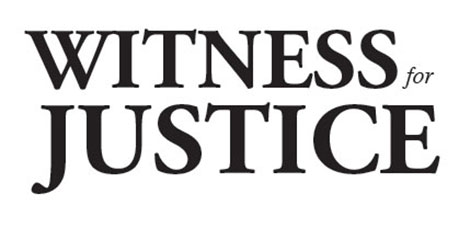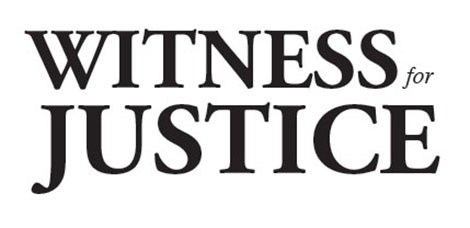Commentary: Accessible and Affordable Healthcare: It’s a Moral Imperative
 “When Jesus came down from the hill, great crowds followed him. Then a man with a skin disease came to Jesus. The man bowed down before him and said, “Lord, you can heal me if you will.”Jesus reached out his hand and touched the man and said, “I will. Be healed!” And immediately the man was healed from his disease.” – Matthew 8:1-3
“When Jesus came down from the hill, great crowds followed him. Then a man with a skin disease came to Jesus. The man bowed down before him and said, “Lord, you can heal me if you will.”Jesus reached out his hand and touched the man and said, “I will. Be healed!” And immediately the man was healed from his disease.” – Matthew 8:1-3
Jesus wept. Jesus also healed. As people of faith, it’s our moral duty to ensure everyone has the chance to live a life of health and wholeness. Making sure health care is accessible and affordable is the only way to accomplish that goal. Repairing, rather than replacing, the Affordable Care Act provides a path to accessible and affordable coverage for more than 30 million Americans.
Through the ACA’s Medicaid expansion and subsidies, millions of working Americans have accessed affordable health insurance coverage, many for the first time. So far the only legislative alternative that proponents of a repeal have put forth, the American Health Care Act (AHCA), doesn’t allow us to meet the moral obligation to help ensure the health of young and old.
What is wrong with the AHCA? For starters, the tax credits and health savings accounts (HSAs) included in the plan wouldn’t make healthcare affordable. Research shows that roughly 70 percent of Americans have $1,000 or less in their savings accounts, making it difficult for them to take advantage of such plans. Encouraging the use of HSAs by increasing contribution limits is one the AHCA’s central features. Minimum contributions to these savings plans would be difficult for minimum wage workers to make. And tax credits, another hallmark of the AHCA, wouldn’t necessarily be that beneficial. Perhaps most concerning, the AHCA would restructure Medicaid, turning it in to a block grant with a per-capita cap. This would further risk access for the poor and those living with disability. Women’s health services are particularly vulnerable. Family planning services wouldn’t be mandatory in states that chose to receive a Medicaid block grant.
As followers of Christ, we don’t have to ask what he would do. We know what he would do. Jesus was a healer. Doing anything that keeps people from getting access to healthcare isn’t Christ-like. The American Health Care Act isn’t a Christian or moral response to concerns about the Affordable Care Act.
As people of faith, we believe in a God who loves all of his creations equally. And, if you love something, you take care of it. So, it’s our moral duty to advocate for equal access to affordable and equitable coverage for all. That’s what Jesus did. As we see in Matthew, he specialized in treating pre-existing conditions.
Anything keeping people from accessing healthcare isn’t faithful or moral legislation. It’s like slapping Jesus’ hand away, when he reaches out to touch someone suffering.
Jason Carson Wilson is Justice and Peace Policy Fellow of the United Church of Christ.
View this and other columns on the UCC’s Witness for Justice page.
Donate to support Witness for Justice through the Neighbors in Need offering.
Click here to download the bulletin insert.
Related News
Gerrymandering
A just world for all includes an equal voice in the ballot box. Perhaps you remember...
Read MoreSaying ‘Yes’ to Reproductive Justice is Living Out the Gospel
Marching through the streets of New York City the day Roe V. Wade overturned became my...
Read MoreNo Sacrifice Zones
A sacrifice zone is a geographic area that has been permanently impaired by...
Read More
